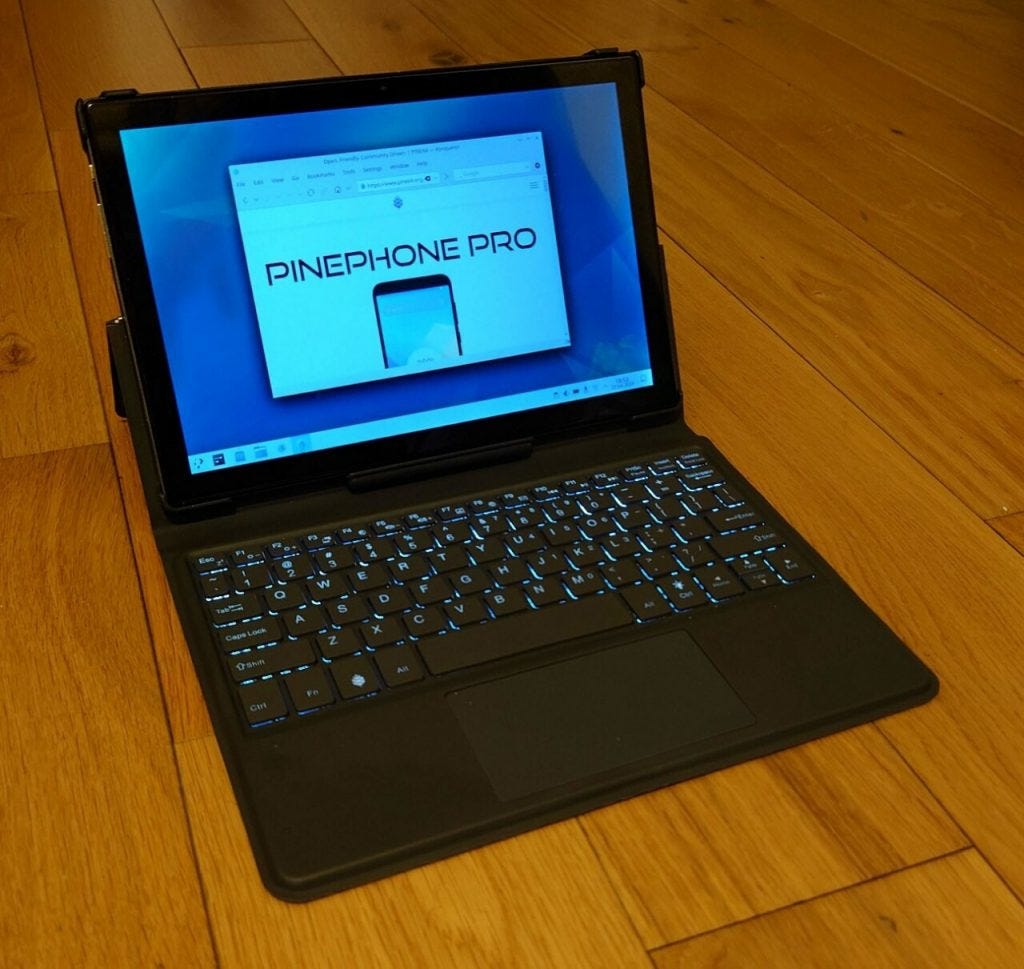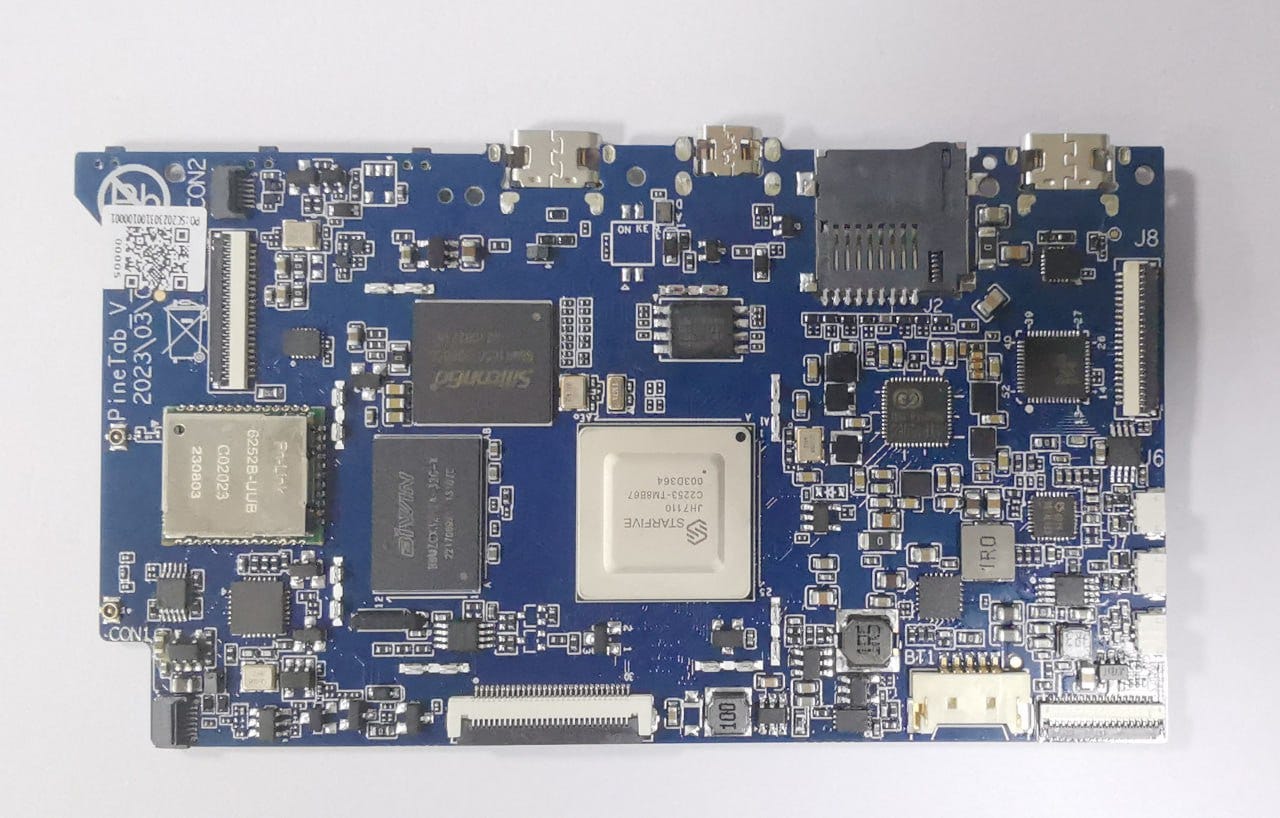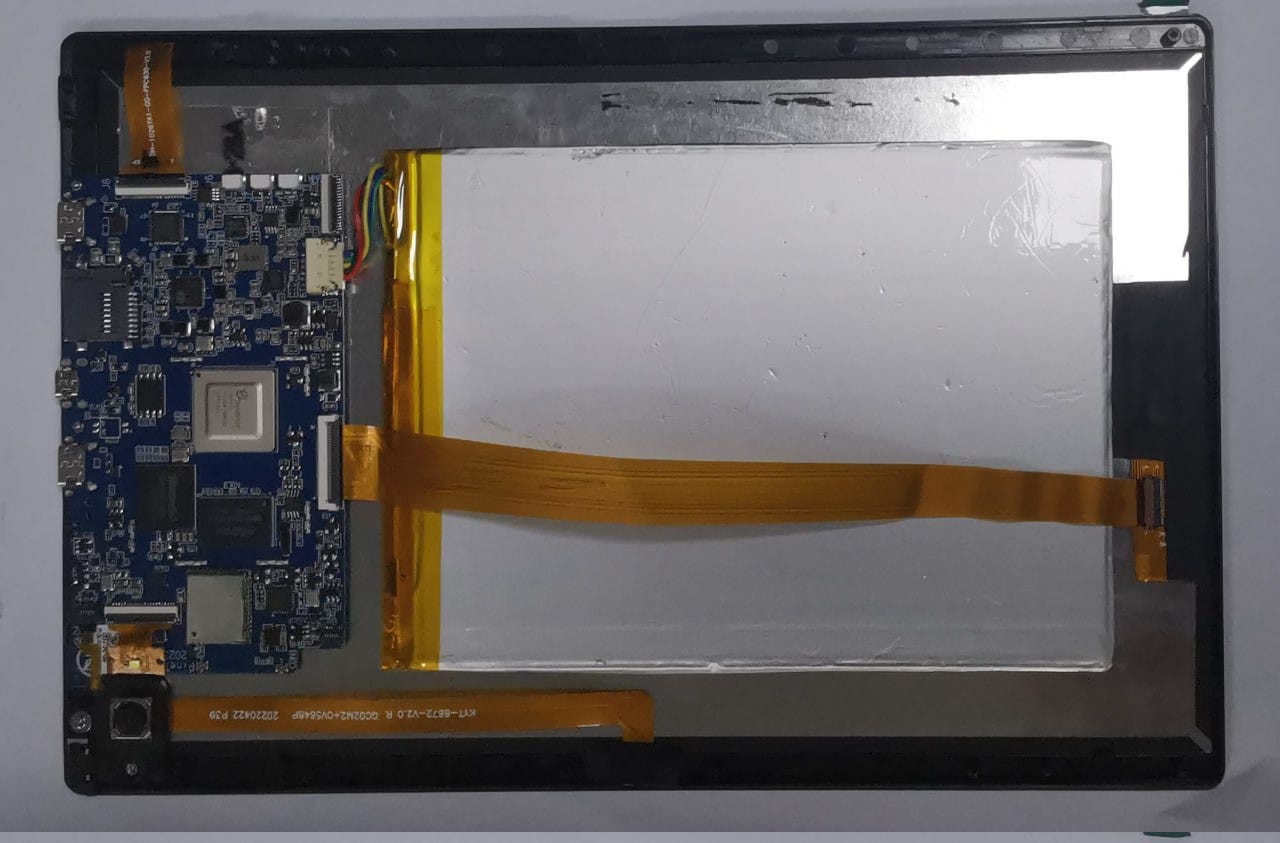Pine64 launches a RISC-V Linux Tablet
The one catch: Linux might not actually boot when you first get it. (I want one anyway.)
Pine64 — makers of the PinePhone and Pinebook laptop — are now branching out from their core wheelhouse (ARM-powered, Linux devices)… and into the wonderful world of RISC-V.
According to their March Update, they will begin taking preorders for a RISC-V powered Linux tablet on April 11th, 2023.
And they will be calling it the “PineTab-V”.
This will be the second entry into Pine64’s RISC-V portfolio: The first being the Star64, single board computer which shipped on April 4th.
Demand for their RISC-V computer was so high… it appears to have sold out within a matter of hours.
I would expect their RISC-V tablet to do the same when it goes on sale on April 11th.
So. What details do we know?
“[T]he PineTab-V is identical to the PineTab2 in all ways but the SoC. It features the same chassis, LCD panel, memory and storage configurations and even SKU price-points.”
In other words:
1280×800 display
In two versions:
4GB of RAM, 64GB eMMC
8GB of RAM, 128GB eMMC
The key difference? RISC-V, instead of ARM. And they’re even going to have the same price points.
“Regarding the pricing: we did consider charging more for the PineTab-V, since it actually costs more to manufacture than the PineTab2 (seriously), but given that it is effectively a glorified paperweight at this point in time it just didn’t feel right.”
Which means you will be able to get a RISC-V powered Linux tablet for:
4GB / 64GB eMMC: $159
8GB / 128GB eMMC: $209
And both ship with a detachable keyboard (pictured above) by default.
Honestly? That seems like a pretty sweet deal to me.
One thing worth bearing in mind: this is RISC-V. Which means it is far less optimized and well supported as the ARM version.
In fact… it may not even fully boot a Linux distro when it arrives. Seriously.
“Ok, so I suppose there is one more thing you should know about the PineTab-V after all – while it walks and quacks like PineTab2, it sure as heck isn’t an Arm machine. You are basically buying into an idea, a vision, a dream [note to self – insert more inspirational words here to motivate them to pick one up]. Indeed, unlike its Arm brethren it doesn’t even boot Linux as of today – at least not as far as I know. So if you are in the market for an open, high-quality and sexy looking tablet that doesn’t work since the software for it is a-way-off from pre-Alpha then you’ll be thrilled to know we’ve got you covered!”
I love that Pine64 are straight forward about what the PineTab-V is, where it’s at, and why someone might want one.
Heck.
I know I sure do.
“[H]ere’s what I want you to take away from this section: if you want a working Linux tablet then go with the PineTab2 (the ARM powered version). However, if you already completed your Picasso collection and no longer take pleasure in neatly arranging your sports cars in the garage, but you have an interest in things ending with the letter ‘V’ and some money to burn, then I feel like the PineTab-V is a prime-candidate pick-up option for you. Go on, do it, I dare you.”
You’re basically purchasing a dream — helping to support and pave the way for a RISC-V powered future.
At $209 for the top end version… it’s not the world’s most expensive machine. The ARM version is obviously going to be far more usable (and is very tempting to me, personally)… but I do so love the idea of a RISC-V tablet!
Not bad looking, right?
And all Linux. No Android or iOS. Which makes it extra special.
So many reasons to subscribe to The Lunduke Journal of Technology. Nerdy articles & podcasts every week. Plus…
Other handy links:








While also excited about the coming RISC-V era, I'm in doubts as to whether there's anything to gain for end users' freedom from the switch to an open-ISA as major manufacturers won't open-license the hardware of their processors regardless of the ISA. The ones that RISC-V will give independence to are the manufacturers of Eastern countries that are at odds with the West. I'm not saying that's a bad thing but that it seems to me ARM processors are not conceptually a worse choice for an end user than RISC-V. At least one doesn't have to go to the extent of Libreboot to be confident in that one's bootloader doesn't hold back doors.